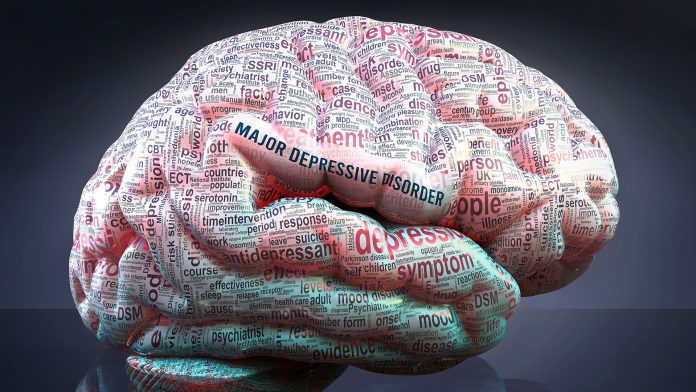
In a groundbreaking study, researchers have uncovered a gene that interacts with stress, mediating certain aspects of treatment-resistant major depressive disorder.
Major depressive disorder is a pervasive mental health condition that affects countless individuals, often rendering them incapacitated. The roots of the condition have long been attributed to a complex interplay of genetic and environmental factors.
The study’s senior author, Dr Jing Zhang, PhD, from Fujian Medical University, emphasised the importance of recognising the synergistic role of genetic risks and environmental factors in the development of major depressive disorder.
“Emerging evidence suggests that major depressive disorder is a consequence of the co-work of genetic risks and environmental factors, so it is crucial to explore how stress exposure and risk genes co-contribute to the pathogenesis of major depressive disorder,” said Dr Zhang.
Investigating the link between stress and major depressive disorder
To analyse this intricate relationship, the research team employed a mouse model of stress-induced depression known as chronic social defeat stress (CSDS).
In this model, mice are subjected to daily confrontations with aggressor mice over a two-week period. The researchers zeroed in on a gene called LHPP, which interacts with other signalling molecules at neuronal synapses.
They discovered that increased expression of LHPP in stressed mice exacerbated depression-like behaviours by reducing the expression of key proteins, BDNF and PSD95, through the dephosphorylation of two protein kinases, CaMKIIα and ERK, in response to stress exposure.
Dr Zhang explained: “Interestingly, LHPP mutations (E56K, S57L) in humans can enhance CaMKIIα/ERK-BDNF/PSD95 signalling, which suggests that carrying LHPP mutations may have an antidepressant effect in the population.”
Advancing treatment options
Major depressive disorder is an incredibly diverse condition, with variations in the types of depression experienced by individuals influencing their response to treatment.
A significant subset of individuals with depression fails to respond to conventional antidepressant medications and exhibits ‘treatment-resistant’ symptoms.
These patients often respond better to alternative treatments like ketamine or esketamine, or even electroconvulsive therapy. It is worth noting that esketamine was found to markedly alleviate LHPP-induced depression-like behaviours, whereas the traditional drug fluoxetine did not.
This suggests that this mechanism may underlie some forms of treatment-resistant depression.
Commenting on the significance of this study, Dr John Krystal, MD, Editor of Biological Psychiatry, noted: “We have limited understanding of the neurobiology of treatment-resistant forms of depression.
“This study identifies a depression risk mechanism for stress-related behaviours that fail to respond to standard antidepressants but respond well to ketamine. This may suggest that the risk mechanisms associated with the LHPP gene shed light on the poorly understood biology of treatment-resistant forms of depression.”
Dr Zhang added: “Together, our findings identify LHPP as an essential player driving stress-induced depression, implying targeting LHPP as an effective strategy in MDD therapeutics in the future.”
This groundbreaking research offers new insights into the intricate relationship between genetics, environmental factors, and major depressive disorder, potentially opening doors to more effective treatments for those who suffer from treatment-resistant depression.
Further studies in this area could lead to innovative therapeutic approaches, ultimately improving the lives of individuals grappling with this debilitating mental health condition.









